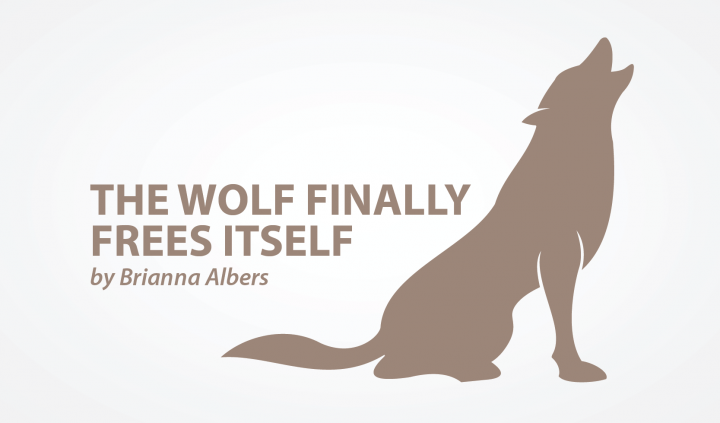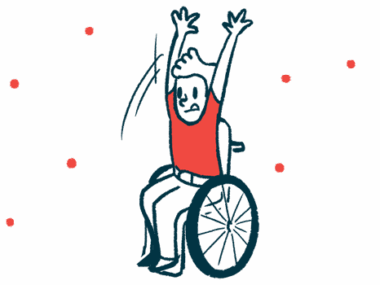When Vulnerability Is Harder Than Usual
Written by |

I’ve always been a fan of vulnerability, I think because the concept is intrinsic to who I am as a person. I can’t leave the house without accepting vulnerability. To be seen like this, with my wheelchair and bony wrists and abdomen bloated from stomach breathing, is a kind of vulnerability I’ve always been familiar with. On some days, existing as a disabled woman in an ableist world feels like the height of vulnerability, the absolute pinnacle.
For the most part, I’m comfortable with vulnerability. It’s second nature to me, probably because I’m used to it. I field questions about my SMA like it’s ingrained in me. People preface their curiosity with an apology like it’s something to be ashamed of: If you don’t mind me asking …, to which I say, I don’t mind at all. Why would I? If anything, I like when people ask. It’s better than ignorance or, worse, misinformation.
I like being vulnerable, but there are some things I struggle with. Case in point: I’ve always had a hard time advocating for myself. In high school, my individualized education program (IEP) had a singular goal: Teach Brianna how to advocate for herself. By the time I graduated, I could email teachers about accommodations and speak up during IEP meetings, but it wasn’t something I did willingly. In fact, I did everything I possibly could to get out of it. I knew I needed to adjust, but at that point, I was so used to silence — to being silent, even when it was to my detriment — that I dreaded the alternative.
I’ve gotten better over the years. But when it comes to socializing, I’m almost … afraid. Not that I’ll be shunned, necessarily, but that my disability will become an obstacle in lives other than my own. I remember, dimly, having people over as a child and knowing somehow that our friendship was one of obligation. Maybe their parents forced them. Maybe they felt bad for the girl who always spent recess by herself, sitting beneath the trees on the far side of the playground, spinning in circles. Maybe it was some combination of the two. I honestly don’t know. But I carry it with me, that mistrust of intention, forever looking at the people in my life and wondering why.
Why are you here? Do you want to be? Is any of this even real?
Those questions follow me, manifesting in anxiety and constant assessments of my own needs. When my friends mention getting together, do I bring accessibility into the conversation? Can I expect them to sit in the handicap row at the movie theater, or is that asking too much? If I invite them to stay the weekend, is it unfair of me to plan activities around my fatigue?
Is vulnerability about my own needs a kind of selfishness? Of course, the answer is no. But I still worry, trucking my way through conversations, always on shaky ground.
It’s exhausting. That kind of self-policing is degrading, but also a survival mechanism, the only way I feel comfortable in a relationship. In most things, I practice vulnerability with intention, but when it comes to disability, I’ve found it’s best to perform able-bodied-ness. If I’m normal enough — even if that normality is a pretense, a façade I throw up in some desperate attempt to be more than myself, to be other — I can know for sure that the people in my life are there because they want to be. It is not out of pity or obligation but love.
Even writing this column is hard. Talking about my disability comes naturally to me, but sometimes I struggle. Admitting that I want to date. Admitting that I can’t do everything. Vulnerability. I can write about G-tubes and pneumonia without a problem, but this?
But I’m trying. I advocated for myself today by mentioning accessibility when a group of people talked about getting together. I quickly closed the tab, scared to see how people reacted. When I brought up Facebook a few minutes later, there was a notification waiting for me: We’ve got you, girl!
***
Note: SMA News Today is strictly a news and information website about the disease. It does not provide medical advice, diagnosis, or treatment. This content is not intended to be a substitute for professional medical advice, diagnosis, or treatment. Always seek the advice of your physician or other qualified health provider with any questions you may have regarding a medical condition. Never disregard professional medical advice or delay in seeking it because of something you have read on this website. The opinions expressed in this column are not those of SMA News Today, or its parent company, Bionews Services, and are intended to spark discussion about issues pertaining to spinal muscular atrophy.





Leave a comment
Fill in the required fields to post. Your email address will not be published.